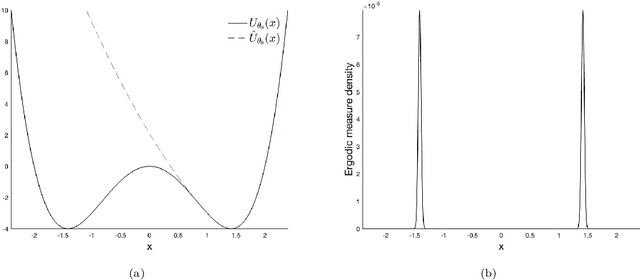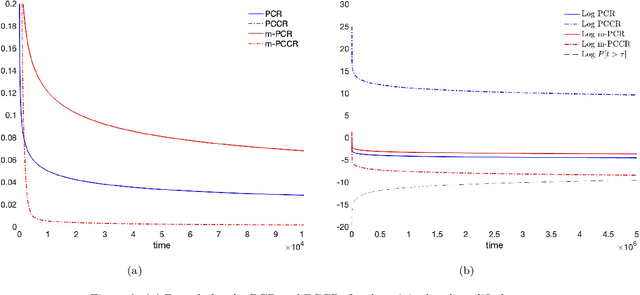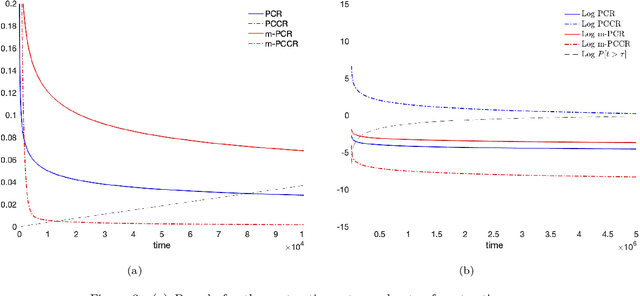Zachary P Adams
Meta-Posterior Consistency for the Bayesian Inference of Metastable System
Aug 03, 2024


Abstract:The vast majority of the literature on learning dynamical systems or stochastic processes from time series has focused on stable or ergodic systems, for both Bayesian and frequentist inference procedures. However, most real-world systems are only metastable, that is, the dynamics appear to be stable on some time scale, but are in fact unstable over longer time scales. Consistency of inference for metastable systems may not be possible, but one can ask about metaconsistency: Do inference procedures converge when observations are taken over a large but finite time interval, but diverge on longer time scales? In this paper we introduce, discuss, and quantify metaconsistency in a Bayesian framework. We discuss how metaconsistency can be exploited to efficiently infer a model for a sub-system of a larger system, where inference on the global behavior may require much more data. We also discuss the relation between meta-consistency and the spectral properties of the model dynamical system in the case of uniformly ergodic diffusions.
 Add to Chrome
Add to Chrome Add to Firefox
Add to Firefox Add to Edge
Add to Edge